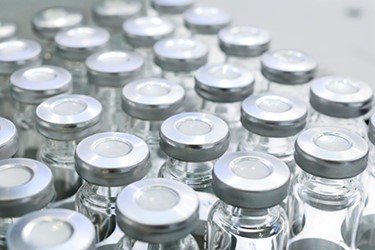Container Closure Integrity Of Parenteral Products

The United States Pharmacopeia USP 1207 guidance has been revised, encouraging the preference to deterministic, quantitative, and reliable non-destructive technologies to comply with quality standards.
Parenteral products are usually packaged in several packaging formats. Most common are the following formats - Liquid-filled containers such as vials, ampoules, syringes, BFS and autoinjectors, and also containers filled with lyophilized product.
Any breach in the package can cause product deterioration from microbial contamination, exposure to gases, water vapor and loss of solvent. Therefore, container closure integrity is an essential stage in the lifecycle of a sterile drug product. Container closure integrity defects can be hazardous to the patients. Life-saving drugs can lose their efficacy or lead to fatal side effects. CCI defects can result in oxidation and have a significant impact on drug’s effectiveness and shelf-life.
Container Closure Integrity Testing Methods
The selection of the appropriate container closure integrity testing method depends on the requirements and purpose of the test. The factors considered while deciding the appropriate CCI test method include sensitivity and reliability of the test method, material of the primary package and inline versus offline testing requirement. Appropriate CCI test methods are able to detect breaches prior to product contamination and ensure patient safety. Moreover, it reduces the risk of catastrophic defects and product recalls.
The latest evolution in the package integrity testing of parenteral products is PTI’s patent-pending Microcurrent HVLD technology and vacuum decay technology.
Microcurrent HVLD Leak Detection Technology
- Applications include liquid-based products ranging from extremely low conductivity sterile water for injection (WFI) to proteinaceous products with suspensions.
- Non-conductive container materials can be glass, plastic or poly laminates
- Detects small pinholes, micro cracks and seal defect detection down to single-digit microns
VeriPac Vacuum Decay Technology
- ASTM Test Method F2338 and FDA Consensus Standard
- Defect detection down to 0.002 cc/min.
- Measures seal integrity of the entire container or package
- Tests for gas leaks for dry products (lyophilized vials, powder-filled)
- Tests for liquid leaks (liquid-filled vials, ampoules, cartridges and pre-filled syringes)
